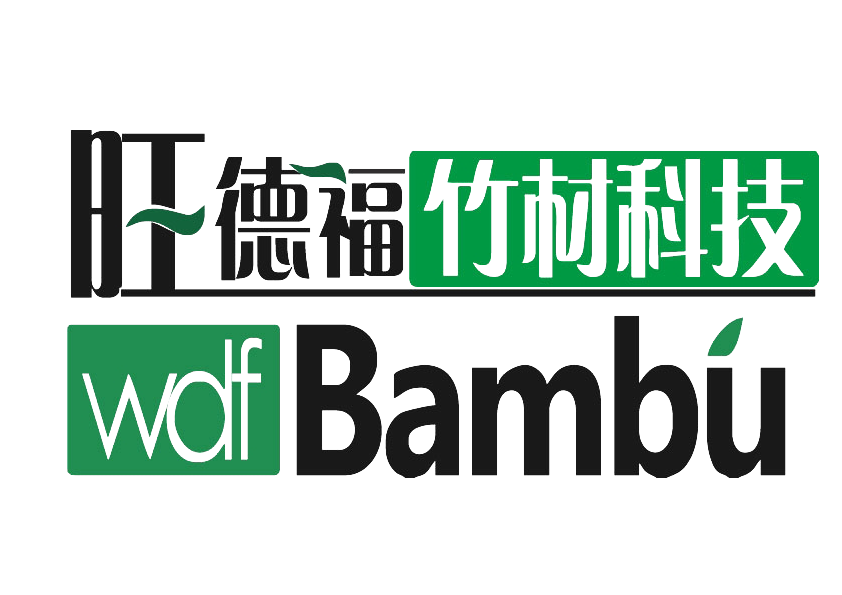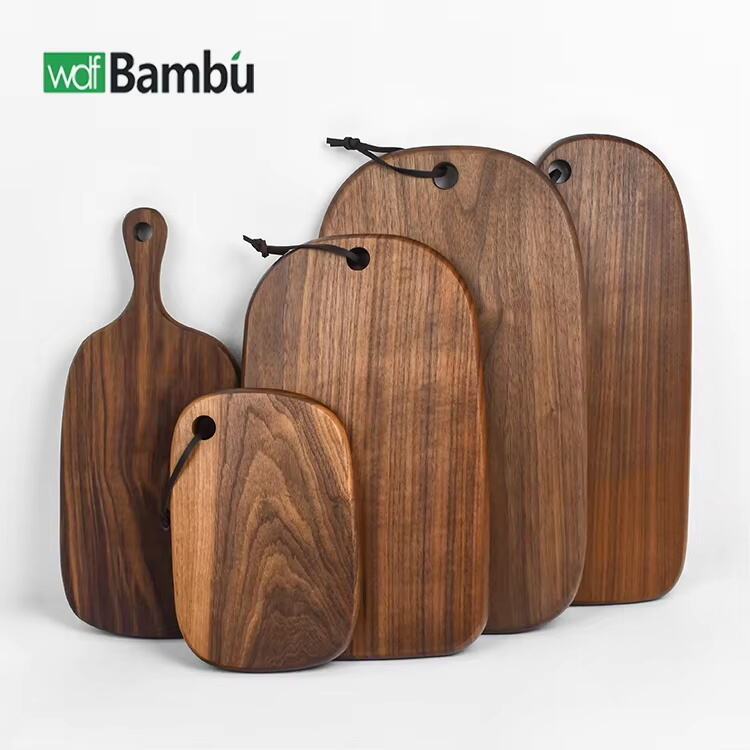Introduction to Bamboo Cutting Boards
Rising Popularity in Modern Kitchens
Bamboo cutting boards are taking over countertops these days because they're good for the planet and look pretty too. People want greener options in their kitchens now, so it makes sense that folks are swapping out plastic for something that actually lasts longer. Social media influencers and those famous TV chefs really pushed bamboo into the spotlight as this trendy kitchen must-have. They keep showing off how nice these boards look next to fancy knives and colorful ingredients. Sales numbers tell the story too there's been a real jump in people buying bamboo stuff lately. Looks like sustainability isn't just a buzzword anymore when it comes to what we put on our kitchen tables.
Key Advantages Over Traditional Materials
Cutting boards made from bamboo have some real benefits compared to regular wood or plastic options. Plastic tends to trap bacteria inside all those little cracks and gouges, but bamboo actually fights off germs naturally since it's less absorbent. That means cleaner surfaces when chopping veggies or slicing meat. What's neat about bamboo boards too is they work great for multiple purposes. Use them for cutting up ingredients during meal prep, then flip them over later to serve appetizers or display cheese boards at dinner parties. Home cooks love how these boards look in contemporary kitchens without sacrificing usefulness. Many people find themselves reaching for bamboo again and again because it just looks good on the counter while still getting the job done properly.
Eco-Friendly and Sustainable Choice
Bamboo as a Rapidly Renewable Resource
People love bamboo because it grows super fast, which makes it pretty much a renewable resource. Some species can actually shoot up around 3 feet every single day! That kind of speed means we can harvest bamboo without worrying too much about running out since it just keeps coming back quickly after cutting. Traditional hardwood trees need decades before they're ready for use, while most bamboo varieties reach full size within just 3 to 5 years. This makes bamboo board cutting boards and other household items much more environmentally friendly options compared to wood from old growth forests. With consumers getting increasingly concerned about their carbon footprint these days, the bamboo industry has been booming worldwide, showing how our shopping habits are slowly shifting toward greener alternatives.
Reduced Environmental Impact vs. Plastic and Hardwood
When looking at environmental effects, bamboo really shines next to plastic and hardwood options. Growing bamboo leaves a smaller carbon footprint because these plants soak up way more CO2 while putting out plenty of oxygen too, actually helping clean the air we breathe. Plus, bamboo stuff breaks down naturally over time, something plastic just can't do since it sticks around in landfills and oceans for hundreds of years. That's why groups like Greenpeace and Earth Day Network keep pushing bamboo alternatives. They see it as a real game changer for cutting down pollution levels. And let's not forget about hardwood either. Those trees need decades to regrow after being cut down, plus they often get treated with chemicals during processing. Bamboo grows back within months without needing harsh treatments, making it much easier on the ecosystem overall.
Durability and Long-Lasting Performance
Bamboo's Resistance to Scratches and Knife Marks
People love bamboo cutting boards because they just don't get scratched up or marked by knives like other materials do. Bamboo itself is pretty hard stuff, harder than most softwoods actually, so it can take all that chopping and slicing without showing damage. I've heard countless stories from folks whose bamboo boards still look almost brand new even after several years of heavy kitchen duty. Customers keep coming back to tell how these boards hold up day after day against everything thrown at them in the kitchen. What's great is that while staying tough enough for serious use, they also maintain their good looks throughout all this wear and tear.
Long-Lasting Performance Under Regular Use
Regular maintenance makes all the difference when it comes to getting the most out of bamboo cutting boards. The basics really aren't complicated at all. Just try to keep them away from sitting in water for too long, make sure they dry completely after washing, and give them a good coat of mineral oil every now and then. Some folks report that properly cared for bamboo boards will stick around for multiple years, which beats most other board materials we see in kitchens today. Most reviewers point out something interesting about bamboo boards though they tend to hold up well over time without warping or cracking like wood boards often do. Following these simple steps means homeowners can enjoy durable, environmentally friendly cutting surfaces that won't need replacing so frequently.
Gentle on Knives
How Bamboo is Softer on Knives Compared to Plastic or Glass
Bamboo cutting boards tend to be easier on knives compared to plastic or glass alternatives. Despite being pretty hard itself, bamboo has this fibrous texture that somehow manages to protect knife edges while still holding up well over time. A lot of kitchen folks actually mention this benefit when talking about their preferred cutting surfaces. Professional cooks in particular swear by bamboo boards because they notice their knives stay sharp longer without needing constant sharpening. Some chefs even claim they've cut down on how often they need to send their knives out for resharpening since switching to bamboo, which makes sense given how much cutting goes on in commercial kitchens day after day.
Preservation of Knife Edges and Sharpness
Bamboo cutting boards help keep knife blades sharp thanks to their special fiber structure. Research into how various materials affect knife edges shows something interesting about bamboo. Even though it's pretty tough stuff, bamboo actually acts like a gentle buffer when cutting through food items. When looking at long term blade maintenance, bamboo tends to outperform those super hard surfaces we see everywhere else, think plastic or glass cutting boards. Culinary pros across many cooking schools consistently point toward bamboo as their go to option for both home cooks and restaurant kitchens. Keeping knives sharp matters a lot not just for getting good cuts but also for staying safe while preparing meals day after day.
Natural Antibacterial Properties
Bamboo's Inherent Antibacterial Properties
Many people prefer bamboo cutting boards because they resist bacteria naturally. The plant actually has something called bamboo kun, a substance that makes it harder for germs to stick around on the surface. Research indicates that bacteria don't last as long on bamboo surfaces when compared to other common materials. One particular test found fewer bacteria growing on bamboo boards than on plastic alternatives thanks to this built-in defense mechanism. Most food safety groups tend to suggest going with bamboo for cutting surfaces during meal prep since it helps keep things cleaner overall. This is why so many home cooks and professional chefs alike gravitate toward them for their kitchen countertops.
Less Odor Retention and Easier Cleaning
Bamboo cutting boards really shine when it comes to holding onto smells. Unlike plastic ones that soak up everything from garlic to fish, bamboo just doesn't grab onto those nasty odors so fast. Most people find these boards stay fresher longer after chopping sessions. Home cooks love how straightforward they are to clean too. A quick rinse usually gets rid of whatever stuck around from meal prep without leaving behind weird scents. Some folks actually recommend giving them a good oiling every now and then to keep things running smoothly and cut down on any lingering smells. Combine all this with how simple they are to take care of, and it's no wonder so many kitchens have switched to bamboo for better food safety.
Conclusion
Recap of the Key Benefits of Using Bamboo Cutting Boards
Bamboo cutting boards come with several benefits that make them stand out in the kitchen. For starters, bamboo is pretty good for the planet since it grows back quickly and breaks down naturally without leaving harmful stuff behind. These boards are also tough as nails and won't crack or warp even after years of chopping away at veggies and meats. Another thing worth mentioning? Bamboo has natural antibacterial qualities which means fewer worries about germs spreading across the board when preparing food. All things considered, going with bamboo isn't just better for Mother Earth either. It makes sense practically too because who wants to replace their cutting board every few months anyway?
Why Bamboo is a Smart Choice for Your Kitchen
Bamboo cutting boards turn out to be pretty smart picks when thinking about kitchen essentials. They back up sustainability efforts and tend to save money in the long run since they last so much longer than other options. When someone goes with bamboo, they're actually helping protect the environment too. Bamboo grows super fast compared to hardwoods, plus it creates more oxygen while soaking up carbon dioxide from the air. Putting bamboo items in the kitchen shows real dedication toward living green. For folks wanting to cut down on their carbon impact without sacrificing function or looks, these boards hit all the right notes both practically and aesthetically.
FAQ
Are bamboo cutting boards better than wooden ones?
Bamboo cutting boards offer several benefits over traditional wooden boards, such as being eco-friendlier due to bamboo's rapid renewability, having natural antibacterial properties, and generally being more durable under regular use.
How do I maintain my bamboo cutting board?
To ensure longevity and performance, avoid prolonged water exposure, dry the board thoroughly after cleaning, and apply mineral oil periodically to maintain its quality.
Is bamboo really eco-friendly as claimed?
Yes, bamboo is one of the fastest-growing plants on the planet, making it a highly renewable resource. Additionally, it absorbs more CO2 and releases more oxygen compared to other plants, contributing positively to the environment.
Do bamboo cutting boards dull knives?
No, bamboo cutting boards are known for being gentle on knives due to their fibrous structure, which helps in preserving knife edges and maintaining sharpness over time.



 Home
Home